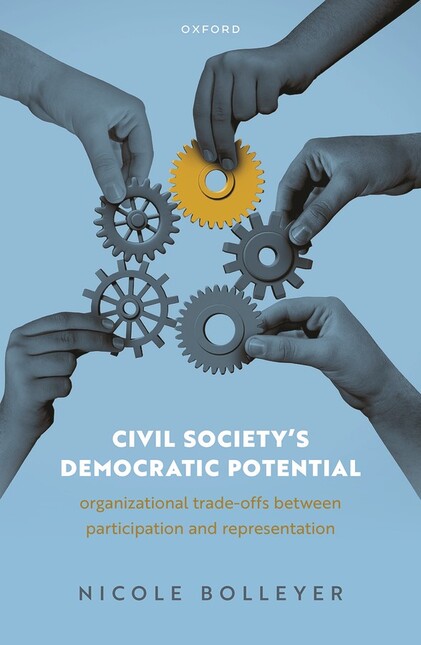"Civil Society's Democratic Potential:
Organizational Trade-Offs between Participation and Representation",
Oxford University Press.
|
In her book Civil Society’s Democratic Potential, Nicole Bolleyer explores which civil society organizations (CSOs) contribute to democracy, how, and why.
Organized civil society, including interest groups, political parties, and service-oriented associations, is traditionally considered a cornerstone of democracy. Constituting the organizational fabric between government and society, these organizations encompass a wide diversity of entities thought to fundamentally contribute to both democratic participation and representation. However, CSOs’ readiness and ability to serve as venues for participation, vehicles of democratic representation, or indeed both at the same time, are increasingly questioned in political science, sociology and voluntary sector research alike. Bringing those fields together, the author argues that two contrasting organizational templates – the ‘voluntary association’ and the ‘professionalized voluntary organization’ – allow theorizing fundamental trade-offs shaping CSOs’ performance on three dimensions accounting for their varying democratic contributions: participation, representation, and societal responsiveness. The study’s theoretical framework is examined using a mixed-methods design. The latter combines the analysis of survey data covering over 3,000 CSOs across four European democracies with qualitative case studies of the evolution of three CSOs – a political party, an interest group and a service-orientated organization – over the course of several decades. The book is an open access publication and available here. See for more information: https://global.oup.com/academic/product/civil-societys-democratic-potential-9780198884392?cc=de&lang=en& Supplementary material can be accessed at the OUP companion website: https://global.oup.com/booksites/content/9780198884392/ The Regulating Civil Society Dataset which the book started out from can be accessed here:
| |||||||||||||
| regulatingcivilsocietydataset_-_release_nov_2019.xls | |
| File Size: | 1236 kb |
| File Type: | xls |

